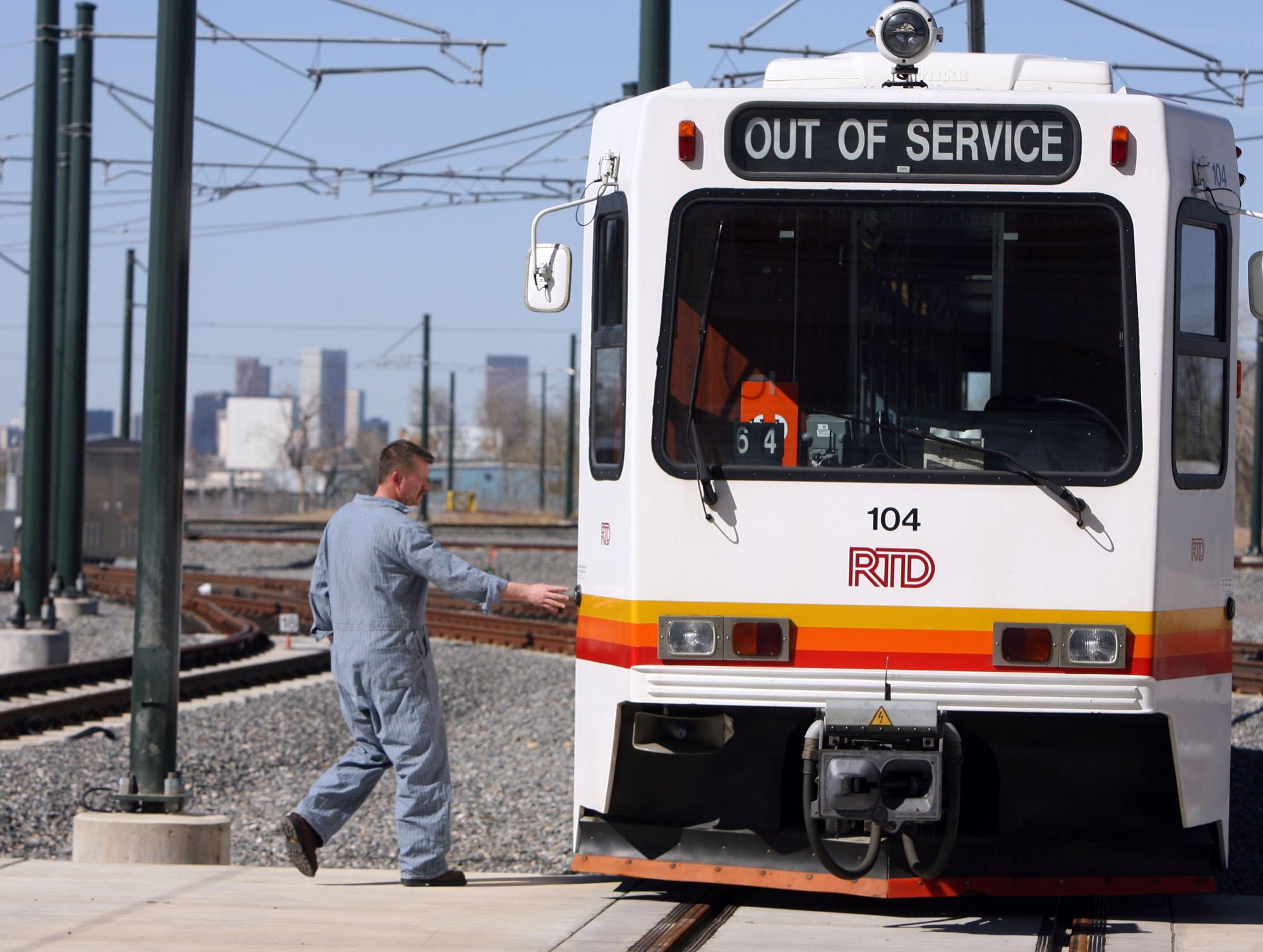
Just a few minutes into the RTD board’s discussion on a proposal to significantly cut service because of a pressing workforce shortage, one thing was clear: no one wants them.
Not the union reps, some of whom are drivers themselves, who sat in the audience of the Tuesday meeting.
Not the staff who put together the proposal as more bus and trains runs are unexpectedly canceled.
Not the riders, who board members noted rely on those buses and trains to get around.
And certainly not RTD’s board of directors, who’d ultimately have to sign off on any service cuts.
“I’m not sure how we’ve arrived at this point as an agency,” board member Shontel Lewis said.
RTD has forced train and bus operators to work overtime for the last four years to keep up with promised service levels. Chief Financial Officer Heather McKillop told the board Tuesday that overtime shifts are required to cover about 15 percent of all bus runs right now, and that figure is higher on the light rail side.
Even with overtime shifts, McKillop said up to 2 percent of all runs, depending on the day, are dropped completely. And required shifts are also the single biggest reason for driver turnover, staff say. Union members say other workplace condition issues are to blame too, including split shifts and bathroom breaks.
RTD officials hope by reducing the need for forced overtime, the agency can make headway chipping away on an approximately 160-person bus and light rail operator shortage.
"What we're trying to do is bring relief to those operators, even if it's just two weekends a month,” McKillop said.
While board members like Lewis said RTD senior staff have done an adequate job describing the issue, they weren’t convinced staff had done everything they could to address it.
"We've heard from operators. We've heard about the mandates. We've heard about split shifts. And we've heard about the restrooms,” Lewis said, before asking staff to come up with a list of alternatives to the cut proposal.
McKillop pushed back, and said RTD has increased its recruitment efforts. “We didn’t even advertise on our own buses or our cars that we wanted employees. We do that now,” she said. "I've never seen efforts, in any organization, [like] we've done here to try to attract employees.”
A handful of board members spoke gingerly in favor of the proposal. Board member Jeff Walker said while the cuts would be painful, they would formally acknowledge what’s already a reality.
"We have a service cut every day when we have a dropped run,” Walker said. “It's just that they are a surprise to a lot of people, and they shouldn't be a surprise. As soon as anything can be put in front of us, I'm all for it. The sooner the better."
Board chair Doug Tisdale said any temporary service cuts would need to have an explicit sunset, to ensure that they’re only temporary. It’s imperative that RTD only make promises that it can deliver on, he said.
_
"We need to give ourselves back our credibility and our trust with the public,” Tisdale said.
For any proposal to proceed, multiple board members said RTD should first consult with community members who’d be affected by the cuts. Those could include other transportation officials at the Denver Regional Council of Governments, or local elected officials. Board member Angie Rivera-Malpiede said Gov. Jared Polis should be on that list too.
“In my opinion, RTD is in crisis,” Rivera-Malpiede said.
Staff will refine the proposal and could present it to the board again in November. The soonest any cuts could be made would be early 2020, and would require union sign-off if they fall outside of routine service adjustments that happen three times a year.
The ATU 1001, which represents more than a thousand RTD drivers, opposes the cuts. Union officials say RTD needs to revamp corporate culture to make it a better place to work. Chris Moralez, a union vice president, said he was glad to see board members pressing senior staff.
"We are definitely at a crossroads,” said Morales, who’s driven for RTD for 16 years. “If they can get the answers to their questions, we'll all be better off."









